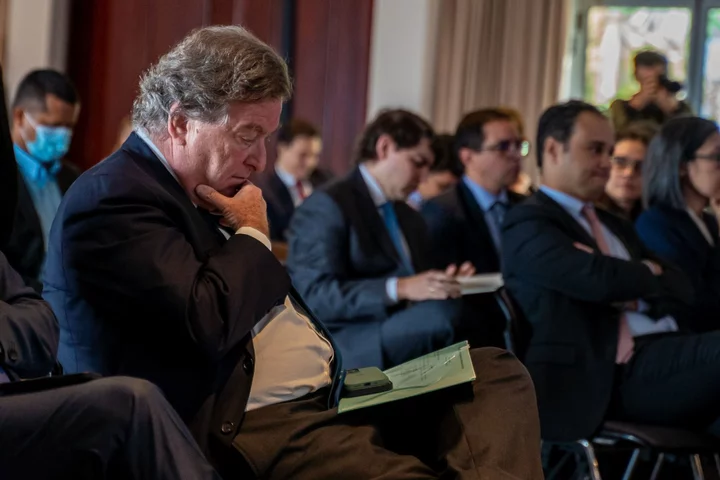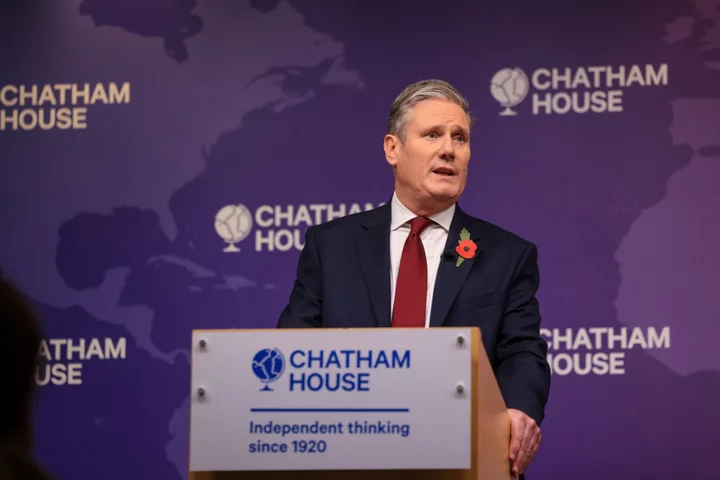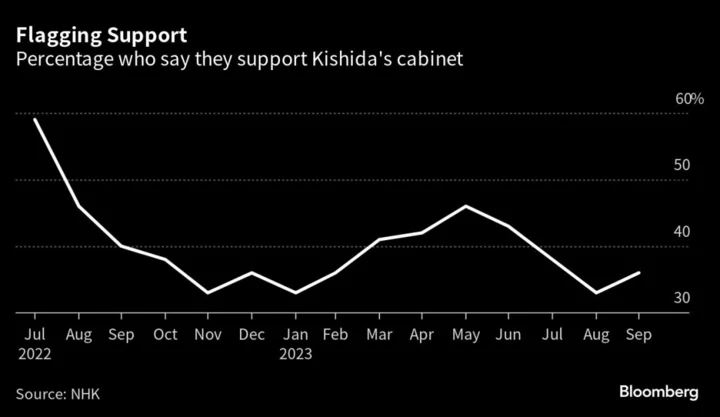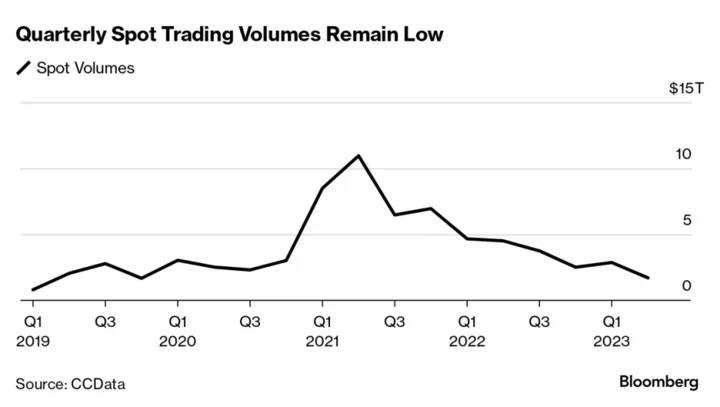Slovakia’s Robert Fico won the backing of two allied parties, putting the former prime minister who campaigned to end military aid to Ukraine on course to return to power this month.
Fico’s comeback in the eastern European Union member state presents a risk to the bloc’s unity over Ukraine as the conflict grinds on and the Israel-Hamas war risks diverting resources and attention. A populist who led Slovakia for 10 years over three terms before resigning in 2018, Fico has challenged EU policy ranging from Russia to climate to migration.
“Protecting citizens from illegal migration is a matter of national interest and a government priority,” Fico told reporters in Bratislava Wednesday as he revived rhetoric targeting LGBTQ rights and pledging increased social spending.
Less than two weeks after his Sept. 30 election victory, Fico’s Smer party signed an agreement with two preferred partners, Voice and the right-wing Slovak National Party, to form a coalition. The three-party alliance would control 79 seats in Slovakia’s 150 seat parliament.
Once a coalition agreement is finalized, the new cabinet will be submitted to President Zuzana Caputova, who will weigh its appointment. Fico said he aims to take office in time to attend the Oct. 26-27 EU summit meeting in Brussels.
All three parties have pledged to uphold Slovakia’s EU and NATO membership, but the nation of 5.4 million could prove a disruptive force alongside Hungary under Prime Minister Viktor Orban, an ally of the former premier.
Fico, 59, cast a pragmatic figure during his previous stints as prime minister, but his rhetoric on the campaign trail has become increasingly radical, including attacks on Caputova, Slovakia’s reformist head of state, as an “American agent.” He stepped down five years ago amid public outrage over the killing of an investigative journalist who was probing corruption.
Taking a cue from Orban, Fico has pledged overhauls in Slovakia’s judiciary, police and the special prosecutor’s office — and has taken aim at independent media and non-governmental organizations. The erosion of democratic standards in Hungary and Poland has drawn scrutiny from EU officials in Brussels, including the withholding of billions in aid.
The new Slovak coalition will span the political spectrum. Like Smer, Voice under erstwhile Fico ally Peter Pellegrini aims to strengthen the state’s role in the economy and provide financial support for citizens. The nationalists share Fico’s condemnation of EU sanctions against Russia and oppose migration and LGBTQ rights.
“We reject these gender ideologies,” Fico said. “We want a return to common sense, we want a return to traditions — we want a return to what is normal and natural.”
The prospective premier also promised to address Slovakia’s widening budget deficit, “in such a way that we do not have to lower the standard of living — and at the same time support economic growth.”
Slovakia is confronting the biggest budget deficit in the EU this year and next, at around 6% of gross domestic product. Without additional measures, outstanding public debt will rise to 66.5% of GDP by 2026 from 57%, according to the Finance Ministry.









